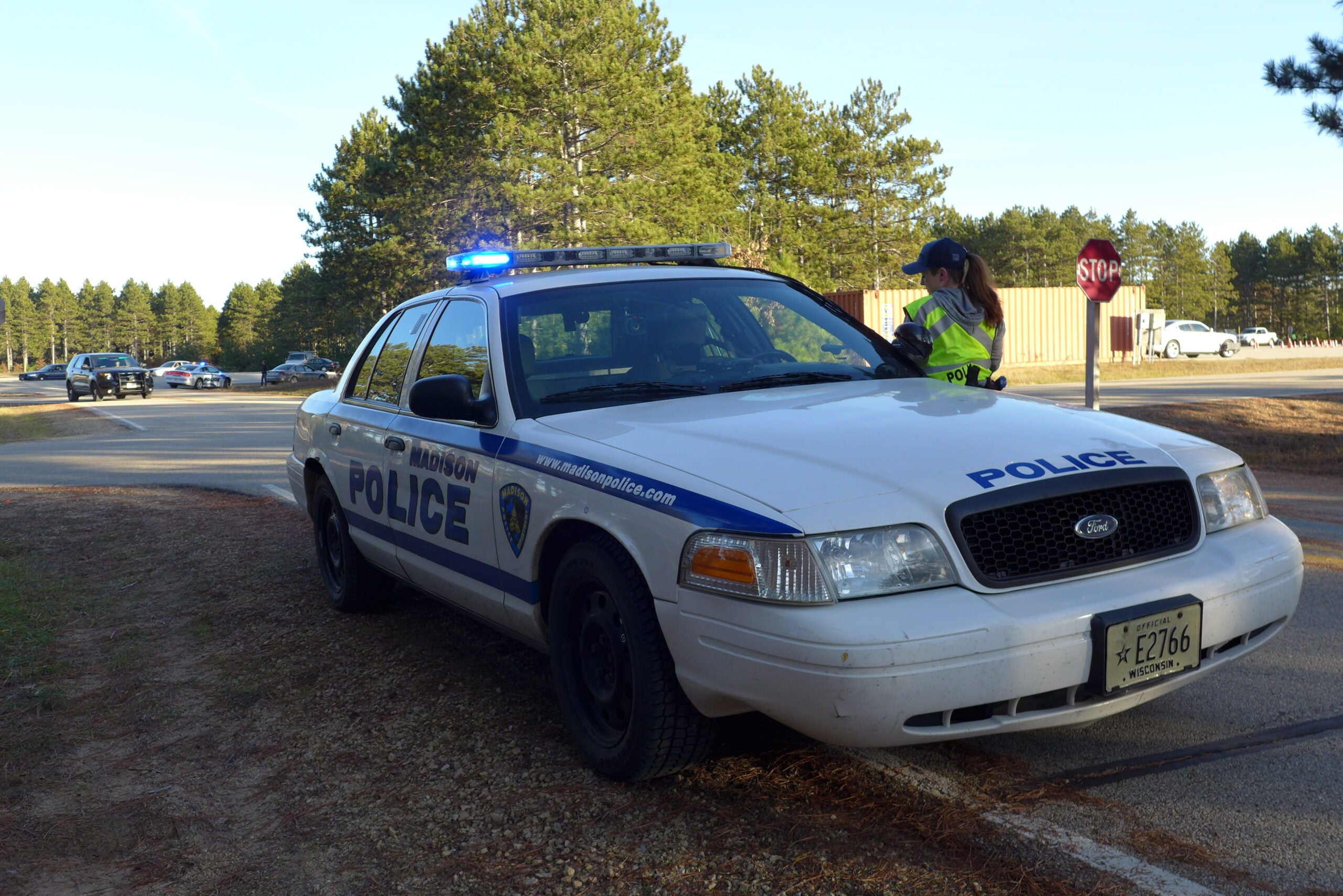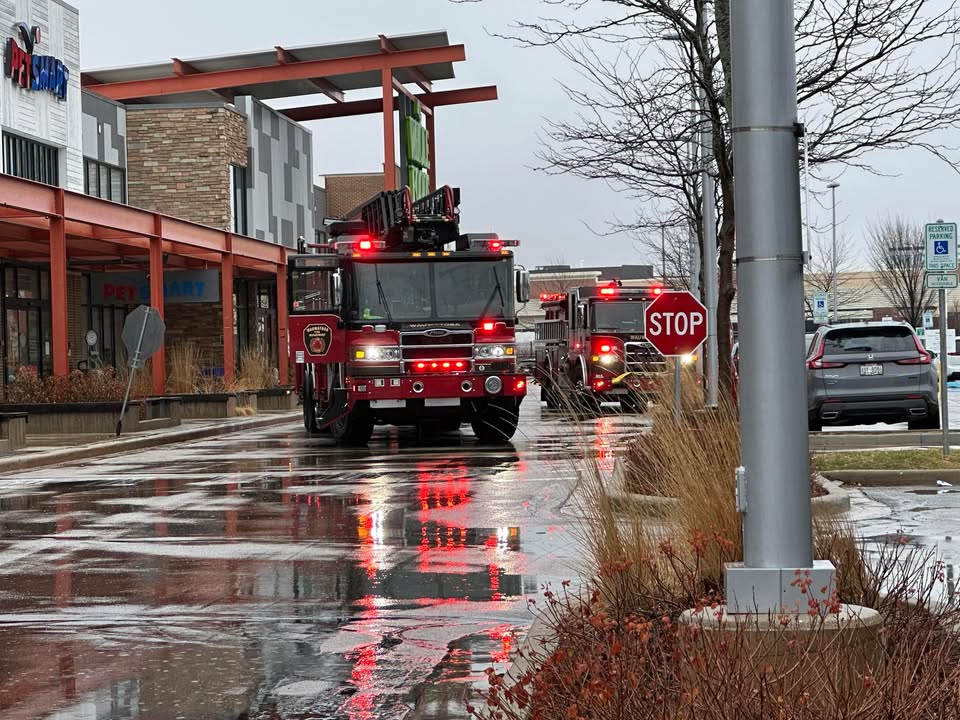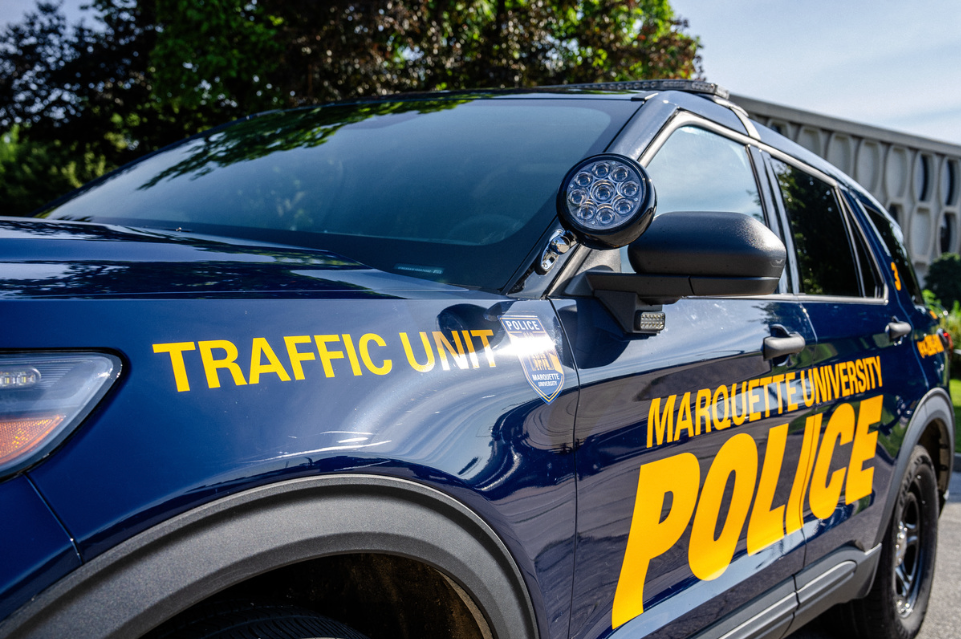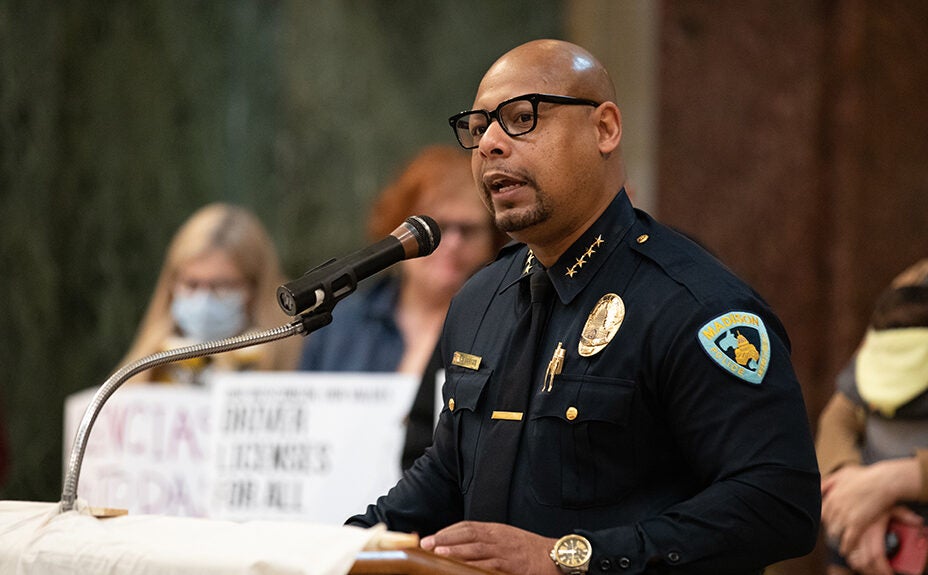The police department serving Wisconsin’s second-largest city is outlining its goals for the next five years.
A strategic plan released this week by the Madison Police Department sets broad priorities, including improving workplace culture to better retain employees, beefing up communication with the public and engaging more with youth.
“When I say improve, I really mean that,” Police Chief Shon Barnes told reporters Thursday. “There are not a lot of police departments that are vulnerable enough to say that there are areas that we can improve.”
News with a little more humanity
WPR’s “Wisconsin Today” newsletter keeps you connected to the state you love without feeling overwhelmed. No paywall. No agenda. No corporate filter.
The report urges upgrades to the police department’s website for self-reporting non-emergency incidents. And it calls for a new virtual response unit, giving the citizens the option to have officers respond by video to take reports of non-emergency incidents.
Other action items include setting up community police advisory boards and continuing to “pursue implementation of body worn cameras.”
The city is using a grant from the U.S. Department of Justice to set up those boards, which will meet in all six of the city’s policing districts and are intended to serve as residents’ voice in conversations with the police department.
Applications to serve on those boards are open through May 26. Officials say they’ll prioritize members from marginalized groups including LGBTQ+ residents and people of color.
Madison police aren’t currently outfitted with body-worn cameras, but city leaders have been debating their use for years.
A year ago, the Madison Common Council narrowly approved a resolution to try out police body cameras in limited form. But alders stopped short of green-lighting the cameras for use department-wide or on a permanent basis. Some city leaders questioning the cost and whether the technology would truly hold police accountable.
On Thursday, Barnes said policies for a body camera pilot program are still being finalized, but he hopes four dozen officers in Madison’s North District will be wearing the cameras by this June as part of that pilot. He said he hopes to submit a proposal for the council’s approval by early May. That plan includes working with a Harvard University researcher to study the impact of the cameras, he said.
“The first step of exploration is to do some experimentation, and then we’ll go forward,” Barnes said. “I believe in the product. But I think it’s more important that we have a process than our community members expect.”
Wisconsin Public Radio, © Copyright 2026, Board of Regents of the University of Wisconsin System and Wisconsin Educational Communications Board.







